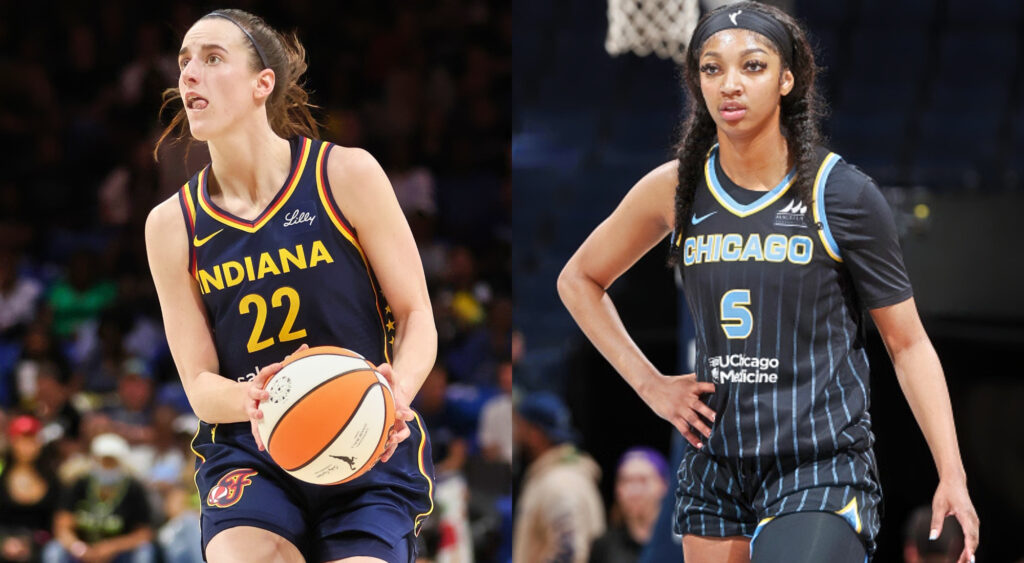WNBA Accused Of Racism After Perplexing Decision On Caitlin Clark & Angel Reese Debuts
 Caitlin Clark and Angel Reese (Photos via Getty Images)
Caitlin Clark and Angel Reese (Photos via Getty Images)
The WNBA has been accused of pulling a racist move following the preseason debuts of Angel Reese and Caitlin Clark.
Both rookies played their first professional basketball games this weekend, but only one of them got to play on television.
The Chicago Sky’s fixture against the Minnesota Linked was not streamed online by the league, and fans were pissed.
Plenty of them lashed out, with some suggesting that race had something to do with it.
“The WNBA is wild embarrassing. To not have Angel Reese and Kamila cordossa games on the league pass is insane. Angel Reese is one of the reasons why women’s basketball is getting so much attention but they made sure to put the white girl front and center, I’m tired of them,” one X user wrote.
“The entire sports media machine made a concerted effort to ignore Angel Reese in this years women’s tournament…so this isn’t the least bit surprising,” another fan added.
“Not saying whether it’s race or not but it’s def horrible for the WNBA and goes to show why they struggle for views lol no reason Reese and Cordossa playing tonight shouldn’t have been on. NBA would never,” wrote another.
You can see some additional reactions below:
Even Sabrina Ionescu Slammed The WNBA For Dropping The Ball On Angel Reese’s Debut
Some of the criticism came from within the WNBA itself, with New York Liberty star Sabrina Ionescu accusing the league of dropping the ball on the game featuring Angel Reese.
“I mean, it sucks,” Ionescu said, via the New York Post. “I think representation of every team is important. … Hopefully, the league can fix that because I think they dropped the ball on that part and hopefully they have a great explanation as to why that wasn’t televised. But hats off to the person that just figured it out.”
Fortunately, a fan streamed the game from their cell phone via X, allowing over 800,000 people to catch it.
Relative Articles
None found





